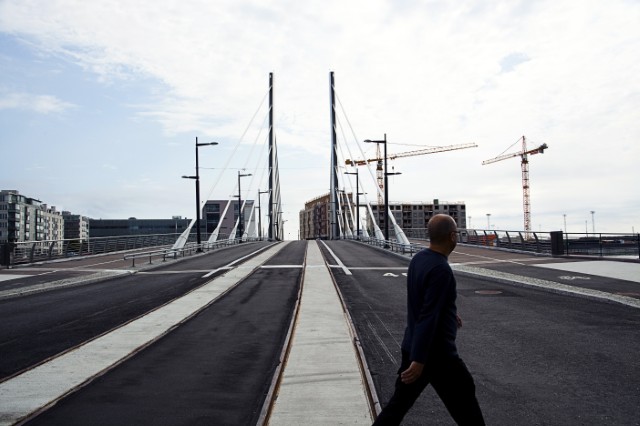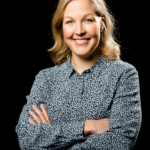Sitra has assembled a New Security Forum to identify and eventually implement ideas to strengthen resilience in a fast-changing world.
What does the word “security” mean to you? Is it those young men with shaved heads, black uniforms and walkie-talkies who patrol the shopping malls? Having to take your belt off when you go to the airport? Being able to use your credit card safely for online payments? Or remembering to lock your front door?
According to Sitra’s Hannele Sirkkanen, these traditional definitions remain valid but it is also time to look at security from different and wider perspectives. In her role as a specialist in Societal Training and Development, she is helping to facilitate the New Security Forum, a project that aims to inspire discussion and new ideas about security.
The forum brings together 31 participants from many different sectors of society, including NGOs, public sector bodies, companies, the media, cultural organisations and academics. Its mission, “to define what security means in today’s complex and rapidly changing world and to find concrete solutions to the security challenges in today’s world”.
The forum takes three core presumptions as its starting point. The first is that contemporary security matters, in addition to traditional (for example, military) threats, are either ecological, social, financial or technological in nature. Secondly, security is not just something that governments and authorities take care of; it affects and involves everyone individually and collectively. Thirdly, security in a complex and fast-changing world means being able to adapt to those changes, not finding ways of preventing them.
The Danish angle
“We don’t have a concept as such and it isn’t in our brief to rigidly define security,” says Sirkkanen. “We will have a better idea what it means in March 2014 when the forum is all over. Our role at Sitra is to build a platform; our forum members are building the content.”
As 2013 came to a close, the New Security Forum could look back over a year of eventful progress. “So far we have had an orientation meeting in October, a seminar over two days in November and an excursion to Copenhagen. The idea of the excursion was to come up with new ideas and look at interesting examples of different actors in society. Copenhagen was chosen for the excursion because in Denmark there is a sympathetic environment to the kind of experimental culture we are interested in.”
The trip also gave the opportunity to develop international networks and gain a broader understanding of how security can support the resilience of society. Participants also had the chance to explore common ground in terms of the challenges facing society in Finland and Denmark.
The visitors attended morning sessions together before heading off in groups for site visits in the afternoon. Forum members reported on assignments completed during and after the day’s sessions and visits. In this way, material was collected and shared on how New Security is implemented at all the different societal levels, from individual citizens to national policymakers. With reference to identified examples, discussions focused on how the resilience of a society can be built using the different facets of New Security.
Experimental
Meanwhile, an open call for ideas has invited input from the wider public. One question asks how, for the sake of greater security, the crisis resilience of food and energy production and self-sufficiency can be increased, and what kinds of local solutions are needed to this end. Another looks at how to reduce the feelings of loneliness and insecurity experienced by the older population. A potential role for Finland in taking a lead in creating international ground rules for dealing with cyber attacks is another angle.
Sirkkanen reports that three strands have been identified for taking the New Security Forum forward in 2014. “In January the participants will choose ten ideas for different pilot projects. As of Christmas 2013 we had received around 50 ideas from our participants and 30 from outside the forum. We hope that the pilot projects will develop into permanent projects. In May or June we’ll compile a report, drawing from a collection of the blogs written by forum members and other material produced during the forum. And thirdly, we’ll be looking for new networks in which to participate.”
Sirkkanen is excited about how the project is proceeding. “I feel that the participants are highly motivated,” she says. “They are excited about the experimental culture.” More than anything, she says, the participants appreciate that the Forum for New Security is a co-creation and co-learning process where participants are the ones defining the key concepts and questions.
Tim Bird




Recommended